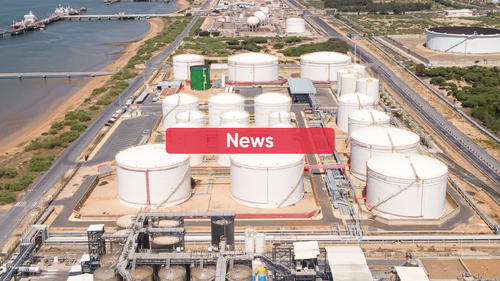
LIPSA has transformed its Huelva refinery into the largest plant of its kind to process various types of feedstock for biofuel, including vegetable oils, waste, and animal fats. The plant promotes the circular economy, reduces greenhouse gas emissions, and aligns with the European Renewable Energy Directive. It also creates jobs and contributes to the local economy. LIPSA is continuously researching and developing new pre-treatment technologies and exploring emerging raw materials to expand its portfolio of advanced products.
In order to strengthen its commitment to the fight against climate change and support a circular economy model, in 2019 LIPSA took a decisive step forward by transforming its Huelva refinery into the largest plant of its kind to process any type of feedstock, whether vegetable oils, waste or C3 animal fats, for biofuel. This project is now a reality, and the factory is currently processing these products with a capacity of up to 500,000 tonnes per year, with the possibility of doubling capacity rapidly.
Accelerating the circular economy
LIPSA HUELVA has thus become the first factory with the capacity to pre-treat waste and fats, promoting the circularity of the economy, the preservation of the earth’s natural resources and the reduction of GHG emissions. In addition, the plant is an example of a business model based on the non-production of disposable waste and the use of clean energy in its operations.
In other words, the plant meets the increased demand for renewable energy sources and provides customers with sustainable, responsible and safe solutions using recycled products that would have been thrown away or used for low-value applications, thus aligning with the guidelines of the new European Renewable Energy Directive (RED II) which outlines the need for a shift towards advanced biofuels from waste and residues.
It also contributes to the generation of wealth in the area, with the creation of 40 direct jobs and around 150 indirect jobs, helping to boost the local economy without reverting harmful and polluting elements into the environment and giving a new life to materials that were previously discarded.
Developing new wastes and residues
In order to adapt to market demands, LIPSA Huelva is in a continuous process of research and development to be at the forefront of pre-treatment technologies and improve the efficiency of waste use. At the same time, our team is continuously searching for new emerging raw materials from waste and residues to expand our portfolio of advanced products and working together with the industry to replicate the success already achieved in availability and quality for other feedstocks that contribute to a cleaner and more sustainable planet.